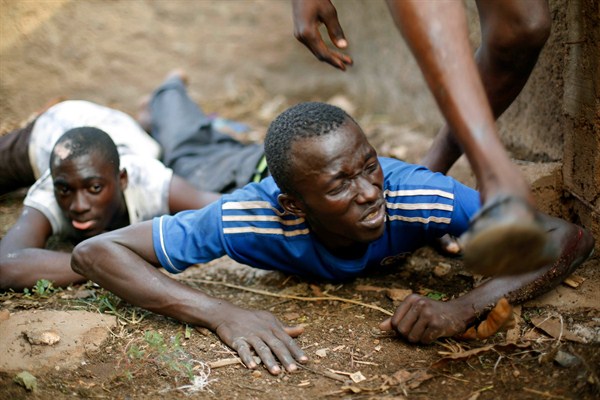In the span of a year, the Central African Republic has gone from a country on the margins of international attention to a flashpoint. Russia’s expanding military presence and French attempts to retain influence over its former colony have ignited a competition for influence, threatening CAR’s already shaky peace process and its fledgling democratic government, which lacks much authority beyond the capital, Bangui. If Russia and France continue to recklessly prioritize their own interests, then CAR’s fragile security situation will only worsen.
In late October, Moscow announced its second arms shipment to CAR and the deployment of 60 additional military instructors. France’s opposition to Russia’s activity has ramped up steadily since then. On Nov. 2, France announced its own delivery of arms, as well as 24 million euros in bilateral aid. French officials also indirectly reprimanded Russia for overseeing a parallel peace process that has undermined the established United Nations-led talks between the government and over a dozen armed groups. In August, Russia and Sudan met with a number of Central African rebel groups in Khartoum and signed a preliminary peace agreement. Paris drafted a resolution for the Security Council labeling the U.N. peace process “the only framework” for a peace deal in CAR. Russia responded by chastising France, saying it should put aside “parochial national interests” and insisting that its efforts were helping.
Prior to Russia’s engagement, France’s interest in CAR’s affairs appeared to be waning as the peace process, which began in 2013, dragged on. Even as the security situation continued to deteriorate, France showed little appetite for any kind of intervention, and only took a major political stance in April when some armed groups falsely claimed that they had French support.

